
For our 2024 rankings, the research team at Nursing Schools Almanac collected data on nearly 3,000 nursing schools and campuses throughout the United States. We evaluated each school on three dimensions:
- The institution’s academic prestige and perceived value
- The breadth and depth of nursing programs offered
- Student success, particularly on the NCLEX licensure examination
We then combined these assessments into an overall score and ranked the schools accordingly. For a detailed description of our assessment methodology and dimension weights, please see here.
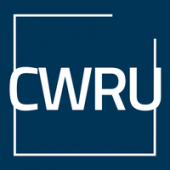
#1: Case Western Reserve University
The Frances Payne Bolton School of Nursing at Case Western Reserve University prides itself on innovation. The school was among the first in the country to offer several nursing programs, including acute care nurse practitioner, gerontological nursing, and doctor of nursing practice. It is also one of few private research universities to offer both a traditional four-year BSN degree and a direct-entry MSN pathway. BSN graduates have earned as high as a 97% pass rate in recent years. Case Western students benefit from their proximity to University Circle, a 550-acre scientific hub with numerous premier healthcare organizations. The school also has seven centers of excellence for nursing opportunities and experiences.

#2: Ohio State University
Twice designated a Center of Excellence by the National League for Nursing, Ohio State’s College of Nursing has educated over 12,000 nurses since its inception. The college places a strong emphasis on research and patient-centered practice across its various program offerings. Ohio State’s online MSN program consistently ranks among the best in the country by U.S. News & World Report. Numerous other programs have garnered top-ten rankings as well, including the DNP degree and several of its subspecialties. The school graduates 200-230 students annually from its four-year BSN program, with an excellent first-time NCLEX pass rate of 94% over the past decade.
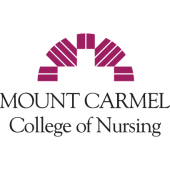
#3: Mount Carmel College of Nursing
Mount Carmel College of Nursing enrolls over 1,000 students and conducts one of the largest baccalaureate nursing programs in the state, with 200+ annual BSN graduates. Over the past decade, these students have passed the NCLEX exam at a 90% rate on their first effort. The college also offers an MSN program with four specialty tracks and a DNP program. Mount Carmel fosters ethnic diversity in its student body and emphasizes small class sizes and personal faculty attention. Students have easy access to hands-on learning at Mount Carmel West Hospital, located right on campus.
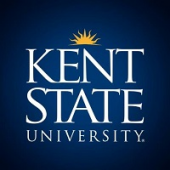
#4: Kent State University
In its mission to address the healthcare needs of Ohioans, Kent State University offers nursing programs at several sites in Northeast Ohio. The ADN program graduates 200-250 new nurses annually at regional campuses in Ashtabula, East Liverpool, Geauga, and Tuscarawas. The prelicensure BSN program graduates another 400-500 students per year at the main campus in Kent and regional campuses in Geauga, Salem, Stark, and Trumbull. Kent State students consistently perform well on the NCLEX licensure exam, scoring an 86% ADN pass rate and an 89% BSN pass rate over the past decade. Graduate nursing students can select from four online tracks and five hybrid (mix of in-person and online) tracks in the MSN program. Kent State also offers a joint MSN/MBA degree and both types of doctoral nursing degrees. The university boasts clinical experiences with more than 350 partners and a 99.6% job placement rate within six months of graduation.
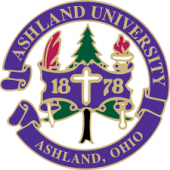
#5: Ashland University
The Dwight Schar College of Nursing & Health Sciences at Ashland University has nearly a dozen nursing program offerings. Undergraduates may choose from four BSN tracks including traditional, advanced entry, accelerated second degree, and online RN-to-BSN. Over the past decade, prelicensure BSN students have achieved a noteworthy 91% pass rate on the NCLEX licensure exam. At the graduate level, Ashland offers both BSN and MS/MSN entry points for its DNP program. Students entering post-BSN may specialize in family nurse practitioner or health systems leadership, while those entering post-MS/MSN may specialize in advanced practice nursing or health systems leadership. The college also offers certificates for aspiring school nurses and nurse educators. All graduate programs are offered online.

#6: Xavier University
The nursing program at Xavier University is one of just a handful of programs in the nation endorsed by the American Holistic Nursing Association. Students learn from faculty with a diverse range of specialties including epidemiology, natural health, gerontology, and occupational health. With an emphasis on improving medical care for the Hispanic community, Xavier’s nursing department has also created an exclusive program that specializes in educating nurses fluent in Spanish. Graduates of all programs perform well on their licensure exams. The accelerated BSN class scored a perfect 100% NCLEX pass rate in 2018, and the direct entry MSN program accomplished the same feat in both 2017 and 2019.

#7: Ursuline College
Ursuline was the first women’s college in Ohio and one of the first women’s colleges in the country. Its Breen School of Nursing maintains this tradition, educating female nurses in the following programs: traditional BSN, accelerated BSN, RN-to-BSN, traditional MSN, RN-to-MSN, and DNP. The school provides five distinct MSN tracks: adult nurse practitioner, family nurse practitioner, palliative care, adult-gerontology clinical nurse specialist, and nursing education. Approximately 75-100 students graduate annually from the four-year BSN program, and they have maintained a solid NCLEX exam pass rate of 88% over the past decade.

#8: Walsh University
The Gary and Linda Byers School of Nursing at Walsh University offers global learning experiences in countries like Haiti, Tanzania, and Italy. Students also enjoy close proximity to local hospitals like Cleveland Clinic, University Hospitals, and Mercy Medical Center. The school graduates 60-90 students annually from its traditional four-year and fast-track BSN programs. These students have scored an impressive 92% first-time NCLEX pass rate over the past decade. Walsh University also integrates four specialty tracks across its MSN, post-graduate certificate, and DNP curriculum: adult-gerontology acute care nurse practitioner, family nurse practitioner, nurse educator, and psychiatric-mental health nurse practitioner.
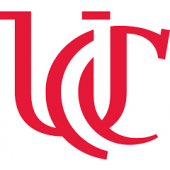
#9: University of Cincinnati
The College of Nursing at the University of Cincinnati offers nursing programs from the undergraduate to the professional level. There are two pathways to the BSN: a traditional prelicensure program and an online RN-to-BSN completion program. The prelicensure program generates 200-250 new nurses annually, and these graduates have maintained an 85% first-time NCLEX pass rate over the past decade. At the graduate level, UC offers two entry points for the MSN degree (traditional post-BSN, accelerated direct-entry) and a breadth of specialization options, including nurse midwifery and five NP tracks. The university also offers both DNP and nursing PhD programs. DNP students may complete four additional online courses (12 credit hours) to earn a nurse education certificate.

#10: Otterbein University
Otterbein University has a proud heritage of equality and inclusion, including its status as the first college in the nation to include women as both faculty members and students. The Department of Nursing’s flagship BSN program prepares students for careers in acute care, primary care, extended care, mental health, and community health settings. Coursework covers critical topics like pharmacology, nursing research, and informatics. The BSN program graduates 40-60 students annually, with an impressive 95% first-time NCLEX pass rate since 2016. The class of 2018 scored a perfect 100% (48 out of 48) NCLEX pass rate. Otterbein also offers graduate nursing programs that award MSN and DNP degrees. Concentrations are available for aspiring family nurse practitioners, nurse anesthetists, and psychiatric-mental health nurse practitioners.
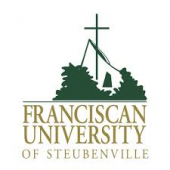
#11: Franciscan University of Steubenville
Franciscan University’s nursing program draws on its Christian values, providing education geared towards holistic health-oriented care. The program offers a traditional BSN for undergraduate students, an RN-to-BSN articulation option for registered nurses, and an MSN program with a family nurse practitioner specialization. Franciscan University’s small BSN graduating class, typically 50-60 students annually, has passed the NCLEX exam at an 89% rate over the past decade. Students have access to a well-equipped Nursing Simulation Laboratory that incorporates the latest Laerdal human patient simulator technology.
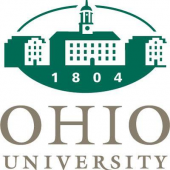
#12: Ohio University
The BSN at Ohio University is one of the fastest-growing programs in the school’s College of Health Sciences and Professions. It is the only CCNE-accredited four-year program in southeast Ohio, serving the university’s mission to upgrade Appalachian Ohio health services. Ohio University conducts both the BSN program and a two-year ADN program at its satellite campuses in Chillicothe, Southern (Ironton), and Zanesville. The BSN program is also offered at the main campus in Athens. At the graduate level, Ohio University has an online MSN degree with tracks for aspiring nurse educators, nurse leaders, and nurse practitioners, including NP options in adult-gerontology, family, and psychiatric-mental health. All five MSN tracks are also available as post-graduate certificates. Finally, Ohio University offers a DNP program with a concentration in advanced clinical or executive practice and with pathways for both BSN- and MSN-educated nurses.
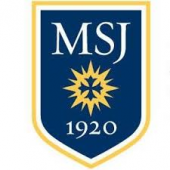
#13: Mount St. Joseph University
The Department of Nursing at Mount St. Joseph University has more than eighty years of experience educating nurses. The department offers several undergraduate and graduate options, including the MAGELIN (Master’s Graduate Entry-Level into Nursing) program for second-degree students. This program has maintained a first-time NCLEX pass rate of 88% over the past decade. The school’s prelicensure BSN students also perform well on their exams: over the past decade, they have passed the NCLEX exam at an 85% rate on their first attempt. Mount St. Joseph also offers traditional MSN and DNP programs for existing registered nurses.
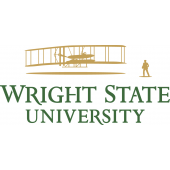
#14: Wright State University
The Wright State University-Miami Valley College of Nursing and Health enrolls almost 700 undergraduate and 220 graduate nursing students. Classes in a range of nursing disciplines and specializations are led by 45 experienced faculty. The college graduates a large BSN class of 150-200 students each year, who have passed the NCLEX exam at rates as high as 97.8% in recent years. A multi-year strategic initiative called the Wright Nurse Project helps the college improve its curriculum towards more evidence-based pedagogy. Students have several opportunities for international immersion, including a study abroad program in the United Kingdom and global health initiatives in Tanzania.

#15: Capital University
Capital University offers nursing programs for those new to the field and for those seeking an advanced degree. The university has traditional and accelerated BSN programs, an MSN degree with several pathways and specializations, and post-master’s certificates for aspiring nurse educators and adult-gerontology clinical nurse specialists. The traditional BSN is for students with no previous nursing education, while the accelerated pathway is for students who have completed a bachelor’s degree in a non-nursing field. Capital graduates 70-100 students annually across both programs, with a solid 88% NCLEX pass rate over the past decade. The MSN program has both standalone and joint degree (MSN/MBA or MSN/JD) options with five possible concentrations: administration, adult-gerontology clinical nurse specialist, legal studies, nursing education, and theological studies.
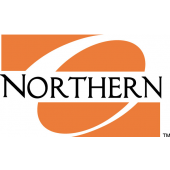
#16: Ohio Northern University
Ohio Northern University offers a four-year prelicensure BSN program. Students begin their clinical experiences during sophomore year and benefit from an 8:1 student-to-faculty clinical ratio. The university graduates 20-30 prelicensure BSN candidates each year. These students have performed exceptionally well on the NCLEX exam, with a 96% first-time pass rate over the past decade. The graduating classes of 2018 and 2020 scored a perfect 100% NCLEX pass rate. ONU students utilize state-of-the-art laboratory facilities and experience a diverse range of healthcare settings. Over the past three years, 98.6% of nursing majors were either gainfully employed or enrolled in graduate school within six months of graduation.
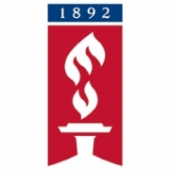
#17: Malone University
Malone University’s School of Nursing & Health Sciences has educated nursing students for over twenty years. The school incorporates evidence-based practice, cultural competence, and simulation training into three nursing programs: a four-year BSN, an RN-to-BSN degree completion pathway, and an MSN degree with specialty tracks for aspiring family nurse practitioners and adult-gerontology acute care nurse practitioners. Faculty members provide students with one-on-one support through both the Center for Clinical Learning and the Center for Study and Testing. Malone’s four-year BSN program graduates approximately twenty-five new nurses annually. These students scored a perfect 100% first-time NCLEX pass rate in both 2018 and 2019.

#18: Cedarville University
The School of Nursing at Cedarville University has a number of unique programs. For undergraduates, Cedarville offers both traditional and three-year BSN programs, as well as a cross-cultural nursing minor. The minor prepares students to work with cross-cultural populations on missions either in the U.S. or abroad. Cedarville graduates almost 100 BSN students annually, with a solid 87% NCLEX pass rate over the past decade. Graduate options include an MSN degree with three tracks (family nurse practitioner, global public health nursing, nurse educator) and standalone certificate programs in the final two tracks.

#19: University of Akron
The University of Akron School of Nursing has been educating Northeast Ohio nurses for more than fifty years. Undergraduate students can pursue four distinct pathways to a BSN degree: traditional prelicensure, accelerated second degree, LPN-to-BSN, and RN-to-BSN. The LPN-to-BSN bridge program can be completed in as little as 2.5 years, while the RN-to-BSN bridge program can be completed in just one year of full-time study or two years of part-time study. The University of Akron graduates approximately 200 prelicensure BSN candidates annually, with a solid 89% NCLEX pass rate over the past decade. Graduate programs include an MSN degree with five NP tracks, a post-baccalaureate DNP in nurse anesthesia, and a hybrid post-master’s DNP that takes just two years to complete.
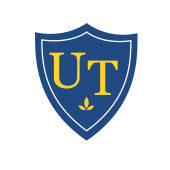
#20: University of Toledo
The UT College of Nursing has a unique partnership with ProMedica. Collectively, the two institutions develop innovative educational programs, offer diverse clinical experiences, provide opportunities for interprofessional research collaboration, and build high-quality professional development programs. The College of Nursing offers a traditional BSN degree through a consortium with Bowling Green State University. UT graduates 150-200 students from this program annually, with a solid 84% NCLEX pass rate over the past decade. The college also offers a graduate-entry clinical nurse leader program with just 30 students per cohort. These individuals have scored an 86% NCLEX pass rate over the past decade. UT’s MSN and DNP programs both offer four distinct nurse practitioner specializations.
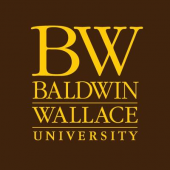
#21: Baldwin Wallace University
The School of Health Sciences at Baldwin Wallace University offers an accelerated BSN program that allows individuals with a bachelor’s degree in a non-nursing field to earn the BSN in just 15 months. The intensive program combines rigorous classwork and lab work with extensive clinical experiences that start in the first semester. All nursing students complete a clinical rotation at Southwest General Health Center in Middleburg Heights, Ohio. Since the program’s launch, BW has graduated 20-40 BSN students annually, with an exceptional 94% first-time pass rate on the NCLEX licensure examination.
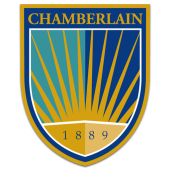
#22: Chamberlain University
Chamberlain University’s Cleveland and Columbus campuses offer a BSN program that can be completed in as little as three years of year-round study, instead of the typical four years with summers off. There are no prerequisites and no wait lists. BSN students receive hands-on experience in Chamberlain’s SIMCARE Center and onsite clinical settings, allowing them to work side-by-side with faculty, peers, mentors, and experienced professionals as they refine their nursing skills. Graduates from both campuses have performed well on the NCLEX-RN licensure exam. Over the past decade, Columbus graduates have achieved a 91% NCLEX pass rate, while their counterparts in Cleveland have averaged an 84% NCLEX pass rate since that program’s recent launch.
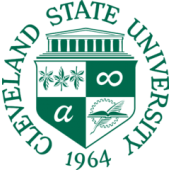
#23: Cleveland State University
The School of Nursing at Cleveland State University offers a traditional BSN for students new to nursing and an accelerated BSN for those with a bachelor’s degree in another field. The university graduates 130-140 students annually across these two pathways, achieving a solid 89% NCLEX pass rate over the past decade. At the undergraduate level, CSU also offers an RN-to-BSN option for licensed RNs and a streamlined BSN pathway in collaboration with Cuyahoga Community College. Post-baccalaureate offerings include an MSN degree and various continuing education programs for working nursing and healthcare professions. CSU students enjoy clinical placements with university partners like MetroHealth and the Cleveland Clinic.
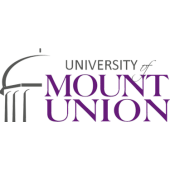
#24: University of Mount Union
The University of Mount Union has two pathways to a BSN degree: the direct entry program and the accelerated second degree program. The direct entry option is a 128-credit-hour, four-year program that allows the student to be directly admitted into the program as a freshman with no waiting lists. Students are immediately introduced to nursing coursework, and they receive hands-on clinical training in the school’s newly built nursing facilities, including a simulation intensive care unit. The accelerated program is customized for adult learners with a bachelor’s degree in another field, and the program can be completed in as little as 15 months. Since the BSN program’s recent launch, graduates have averaged a near-perfect 99% first-time pass rate on the NCLEX-RN licensure examination.

#25: Mercy College of Ohio
Mercy College of Ohio offers several programs for aspiring nurses including prelicensure ADN and BSN programs, an online RN-to-BSN pathway, and an online MSN degree. The ADN program graduates 120-150 students annually across both a daytime and an evening / weekend offering. These students have scored an impressive 88% NCLEX pass rate over the past decade. The prelicensure BSN program graduates another 75-100 students per year, with a strong 83% NCLEX pass rate over the same time period. Mercy College offers its online MSN degree through a 36-credit-hour program that can be completed in six semesters.

#26: Aultman College
Aultman College dates back to 1890 when Stark County’s first hospital opened its doors. The college is northeast Ohio’s only health system-affiliated institution of higher learning, with more than 350 students enrolled across its health sciences, medical assisting, nursing, radiography, and social work programs. Nursing students can enroll in one of three degree programs: an associate of science in nursing (ASN), a prelicensure bachelor of science in nursing (BSN), or an RN-to-BSN completion pathway. Students receive unparalleled clinical and learning experiences at Aultman Hospital, Stark County’s largest employer and the area’s only Magnet-designated facility. Nursing graduates have an excellent track record on their licensure examinations. Over the past decade, ASN graduates have averaged an 87% first-time pass rate on the NCLEX-RN exam, including a perfect 100% pass rate in 2020.
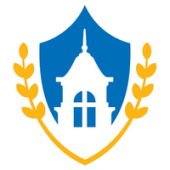
#27: Christ College of Nursing & Health Sciences
The Christ College of Nursing & Health Sciences was founded in 1902 as the Christ Hospital School of Nursing. The college serves hundreds of nursing students annually across three BSN pathways: a traditional prelicensure program, an accelerated second degree, and an RN-to-BSN option offered 100% online. The prelicensure BSN curriculum incorporates a diverse clinical format that includes acute, long-term, and community care. These clinical experiences are offered through the Christ Hospital Health Network as well as other regional healthcare providers. Since the program’s launch, Christ College students have averaged a 90% first-time pass rate on the NCLEX-RN licensure exam. Online RN-to-BSN students can choose between a fulltime one-year option and a part-time two-year option.
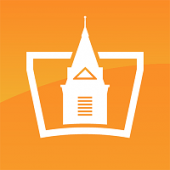
#28: University of Findlay
The University of Findlay has gained a national reputation for excellence in its science, health professions, animal science, and equestrian studies programs. The school recently launched a traditional BSN program that emphasizes critical thinking, ethics, diversity, health and human functioning, professional leadership, and emerging trends in healthcare. Students gain hands-on experience in Findlay’s nursing care skills lab and through clinical practice at local healthcare centers. Coursework covers important concepts like community health nursing, psychology, human anatomy, intercultural care, and maternal-child nursing. Exceptional high school students may be admitted directly into the program during their senior year.
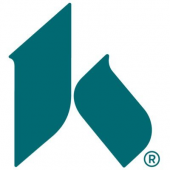
#29: Kettering College
For more than thirty years, the Division of Nursing at Kettering College has prepared men and women for nursing careers. Focused solely on undergraduate education, the division offers three BSN programs: a three-year prelicensure track, a three-year bridge for licensed practical nurses, and a full- or part-time degree completion program for registered nurses. The school’s 2020 graduates passed the NCLEX licensure exam at a 90% rate, several points above the statewide average. The Division of Nursing faculty is focused on educating highly skilled and caring healthcare professionals in a Christian environment.
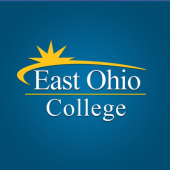
#30: East Ohio College
East Ohio College trains hundreds of future healthcare professionals each year, with a breadth of program offerings that includes dental assisting, medical assisting, medical administration, and registered nursing. The school’s ADN program provides direct admittance and requires only 24 months of fulltime study to complete. Students review critical topics like health promotion and maintenance, nursing roles, nursing values, and therapeutic communication. Each spring, a small cohort of approximately 20-30 aspiring nurses graduates from the ADN program. These students have averaged an 87% first-time NCLEX pass rate since the program’s inception. The class of 2020 scored an impressive 95% first-time NCLEX pass rate.

#31: Good Samaritan College of Nursing and Health Science
Good Samaritan College of Nursing and Health Science is a subsidiary of Good Samaritan Hospital, a partner of the TriHealth integrated healthcare system. The college serves the tri-state region of Southwestern Ohio, Northern Kentucky, and Southeastern Indiana. GSC offers an ADN program with both traditional entry and LPN advanced placement, as well as an RN-to-BSN program. The ADN curriculum provides a background in the principles of nursing; the biological, physical, and behavioral sciences; and the liberal arts. Good Samaritan College produces approximately 100 ADN graduates each year, with a solid 84% first-time pass rate on the NCLEX exam over the past decade. Students who complete the ADN program may then matriculate into the BSN program on either a fulltime or part-time basis.
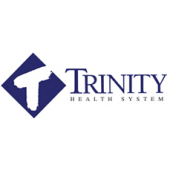
#32: Trinity Health System School of Nursing
Trinity Health System School of Nursing was founded in 1912 as the Ohio Valley Hospital School of Nursing. Over the ensuing century, more than 2,000 nurses have earned the school’s distinctive pin. Trinity offers a hospital-based diploma program with a robust 24-month curriculum, including two summer sessions. Clinical experience is offered at Trinity Medical Centers East and West, encompassing a broad range of outpatient and inpatient care. All non-nursing instruction is led by Eastern Gateway Community College, ensuring that Trinity students receive full college credit. The School of Nursing has posted a superb 96% NCLEX-RN pass rate over the past decade. Job placement has been equally impressive: greater than 95% of graduates have gained employment in the field within one year.

#33: Firelands Regional Medical Center School of Nursing
Firelands Regional Medical Center School of Nursing has a long history dating back to 1905, when it was known as Providence Hospital School of Nursing. Beginning with the class of 2012, graduates have earned both an associate of science degree from Bowling Green State University Firelands and a nursing diploma from Firelands Regional Medical Center. This approach has enabled students to complete all RN-to-BSN prerequisites prior to graduation. Clinical experiences are offered on-site at the medical center. The School of Nursing typically graduates 25-40 new nurses annually. These students have achieved an excellent 92% first-time pass rate on the NCLEX licensure exam over the past decade.

#34: Wittenberg University
Wittenberg University is a top-ranked liberal arts college situated on a sprawling 114-acre wooded campus. The university offers two pathways to a BSN degree: a traditional four-year program and an RN-to-BSN bridge program. Admission to the traditional BSN program is competitive and currently limited to just 35 students. The curriculum requires 120-130 credit hours of both general education and nursing coursework. The RN-to-BSN completion program consists of 22 semester hours in nursing courses. Sample topics include Health Assessment, Cultural Competence in Health Care, Evolving Concepts in Leadership & Management, and Research & Evidence-Based Practice.

#35: Mount Vernon Nazarene University
Mount Vernon Nazarene University’s BSN program prepares students for a successful nursing career through rigorous classroom instruction and clinical practice opportunities in a variety of healthcare organizations. Coursework covers critical topics like adult medical-surgical nursing, leadership and management in nursing, and population health nursing. MVNU nursing students can take advantage of travel opportunities to places like Belize, Croatia, Hungary, Italy, Israel, and Swaziland. The BSN program graduates a select cohort of 20-30 students annually. Over the past decade, these students have scored an 83% first-time pass rate on the NCLEX-RN licensure exam.
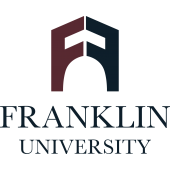
#36: Franklin University
Franklin University offers a transfer-friendly RN-to-BSN program designed for nurses with an associate degree or nursing diploma. This accelerated program consists of nine six-week modules that are delivered online in a media-rich and hands-on manner. Courses cover critical topics like nursing leadership and management, clinical competence, evidence-based practice, community and population health, health informatics, healthcare law, and ethics. Students take 24 hours of core courses, 12 hours of general education requirements, 26 hours of university electives, 24 technical credit hours, and 34 hours in the major. Franklin University also offers an MSN degree program with a generalist track, an RN-to-MSN pathway, and specializations for aspiring nurse administrators and family nurse practitioners.
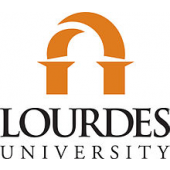
#37: Lourdes University
The College of Nursing at Lourdes University has three undergraduate tracks: traditional, direct admission, and RN-to-BSN completion. The direct admission pathway is for exceptional high school students with a 3.0 GPA and at least a 22 on the ACT or an 1120 on the SAT. Approximately 70-100 prelicensure students graduate from the BSN program each spring, and these individuals have achieved an 83% NCLEX pass rate over the past decade. At the graduate level, Lourdes University offers an MSN program with direct entry and nurse educator tracks. The university also recently launched an online post-master’s DNP in Leadership for Population Health.
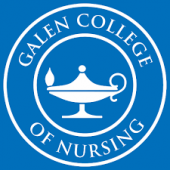
#38: Galen College of Nursing
With eight campuses and an online division, Galen College of Nursing is one of the largest nursing schools in the United States. The Cincinnati campus offers several prelicensure programs for aspiring nurses, including two associate degree pathways (traditional, LPN-to-ADN bridge) and an innovative three-year BSN degree. The college also offers an RN-to-BSN completion program and an MSN degree with leadership and educator tracks through its online division. The Cincinnati campus graduates approximately 150-200 ADN students annually. These graduates have averaged a solid 86% pass rate on the NCLEX-RN licensure exam over the past decade, including an impressive 95% pass rate in 2019.

#39: Muskingum University
For the past five years, graduates of Muskingum University’s traditional BSN program have achieved a 100% first-time pass rate on the NCLEX-RN licensure exam. They have also enjoyed an impressive 100% employment rate after graduation. Muskingum offers small class sizes that foster individual attention from experienced faculty members. Students take clinical practicums in a variety of healthcare settings, including Nationwide Children’s Hospital, one of Ohio’s premier medical facilities for children. In addition to the traditional BSN, Muskingum offers an online RN-to-BSN program and an accelerated second-degree program. The RN-to-BSN pathway can be completed in as little as one year, with flexible course scheduling to meet the needs of working nurses. Students earn elective credit for work experience, continuing education, and nationally recognized credentialing. The accelerated BSN is for candidates who already hold a baccalaureate degree in a non-nursing field. These students complete the BSN degree over four consecutive semesters, in preparation to sit for the NCLEX-RN licensure exam.
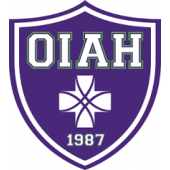
#40: Ohio Institute of Allied Health
The Ohio Institute of Allied Health is a healthcare career college that offers both LPN and RN diploma programs. Expert instructors teach nursing courses in small class sizes, with a diverse range of clinical experiences offered at local healthcare facilities. All programs are conducted at an accelerated pace, and classes are offered year-round. Over the past decade, LPN graduates have averaged an 88% NCLEX-PN pass rate, including several cohorts with a perfect 100% pass rate. Students in the RN diploma program have scored above an 85% NCLEX-RN pass rate three out of six years since the program’s launch.

#41: Bowling Green State University
Bowling Green State University has historically offered prelicensure nursing education through local partnerships, including a consortium with the University of Toledo College of Nursing. Graduates of the BGSU/UT program have fared well on their licensure exams, scoring an 84% first-time NCLEX pass rate over the past decade. Recently, UT notified BGSU that it wanted to phase out its partnership. In response, BGSU has developed its own CCNE-accredited four-year nursing program which enrolled its first cohort in the fall of 2021. The School of Nursing also offers an online RN-to-BSN completion program and a unique LPN industry certificate. The RN-to-BSN curriculum is conducted through asynchronous seven-week courses, enabling students to finish the entire program in as little as three semesters. The LPN industry certificate allows RNs who were formerly licensed practical nurses to apply 16 college credits toward their baccalaureate studies.

#42: Professional Skills Institute
Professional Skills Institute offers an LPN program that takes 72 weeks to complete. Divided into six 12-week quarters, this diploma program prepares students to sit for the NCLEX-PN licensure exam. Coursework covers a breadth of introductory healthcare topics like nutrition, electronic charting, gerontological nursing, maternal / infant nursing, and medication administration. Graduates of the program enjoy strong job placement rates with local hospitals, clinics, physicians’ offices, long-term care facilities, and nursing homes. PSI graduates 60-100 new practical nurses each year, and these students have achieved a strong 87% NCLEX pass rate over the last decade.
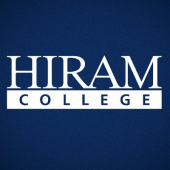
#43: Hiram College
Hiram College offers a direct-entry BSN program with small class sizes, state-of-the art facilities, and access to world-renowned clinical sites like Cleveland Clinic and University Hospital System. At these clinical sites, nursing students gain experience in a range of specialties including adult health, community health, critical care, gerontology, newborn health, pediatrics, and psychiatric mental health. Students in the program have the opportunity to minor in fields such as biomedical humanities, Spanish, and psychology. Because this is a direct-entry program, no separate application is required. Recent graduates have performed well on the NCLEX-RN licensure examination, including an 85% first-time pass rate since 2016.

#44: Miami University
The Department of Nursing at Miami University provides two options for obtaining a BSN degree: a prelicensure full-time four-year curriculum and a fully online curriculum for RNs with an associate degree or nursing diploma. The BSN program prepares nurses for leadership and management roles, including research associate and occupational health nurse. Coursework explores the nursing process for health promotion, prevention, restoration, and maintenance with clients, families, and groups in community health settings. Students in the prelicensure curriculum begin clinical experiences during their sophomore year. These students have averaged approximately an 81% first-time pass rate on the NCLEX-RN licensure exam over the past decade.
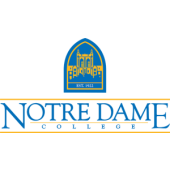
#45: Notre Dame College
Founded as a four-year liberal arts college for women, Notre Dame is now a fully coeducational institution where career-focused, experiential learning complements the college’s liberal arts foundation. The Division of Nursing offers traditional BSN, RN-to-BSN, and MSN programs. The traditional BSN program is taught in small cohorts of 20-30 students, with an 8-10:1 student-to-faculty ratio during laboratory sessions and a 4-8:1 student-to-faculty ratio during clinicals. Experiential learning includes annual international immersion trips and clinical experiences in acute care institutions, community agencies, home health settings, and school environments. BSN graduates have averaged an 82% pass rate on the NCLEX-RN licensure exam over the past decade. Notre Dame’s MSN program is a 39-credit-hour curriculum that includes 120 hours in a clinical practicum and a final capstone project.
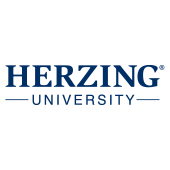
#46: Herzing University
Herzing University’s Akron campus offers a breadth of nursing options including LPN, ADN, BSN, and MSN programs. The LPN diploma can be completed in just 12 months of full-time study, while the ADN requires just 20 months to complete. Students in the ADN program have earned a solid 86% pass rate on the NCLEX licensure exam over the past decade. Herzing offers two BSN pathways. The prelicensure BSN is a year-round program that can be completed in three years rather than the traditional four. The RN-to-BSN includes 45 hours of experiential learning and may be completed in less than a year. Herzing University’s MSN program offers specializations in family nurse practitioner, nurse educator, and nursing leadership & administration. The MSN can be completed online in as little as 20 months.
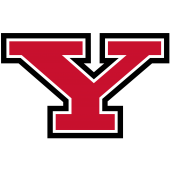
#47: Youngstown State University
The James and Coralie Centofanti School of Nursing at Youngstown State University offers BSN, MSN, and DNP degree programs. The BSN has two pathways: entry-level prelicensure and online RN-to-BSN. The entry-level pathway is a four-year program for new or transfer students entering YSU without a previous degree or diploma in nursing. The university graduates 70-100 students annually from this entry-level program, with a solid 87% NCLEX pass rate over the past decade. The RN-to-BSN pathway is for licensed nurses who are returning to YSU to complete requirements for a baccalaureate degree. This program takes just four semesters to complete. Youngstown State’s MSN program has clinical options in adult-gerontology acute care nurse practitioner, family nurse practitioner, and nurse education. In the spring of 2021, the university launched a 36-month nurse anesthesia DNP degree through a cooperative with St. Elizabeth Health Center School for Nurse Anesthetists.
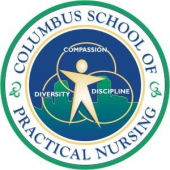
#48: Columbus School of Practical Nursing
For over sixty years, Columbus School of Practical Nursing has provided cost-effective vocational training to the Columbus community. The school offers a 12-month, three-trimester LPN certificate program, with new classes starting at the end of each January, May, and September. This flexible scheduling allows the program to educate 50-100 new LPNs each year. Graduates have scored an 88% pass rate on the NCLEX-PN national licensure exam over the past decade, higher than the Ohio and national averages. They have also secured employment in the field, with a 70% job placement rate within six months of program completion. Many students use the LPN role as a stepping stone to subsequent education, licensure, and employment as a registered nurse.

#49: Defiance College
Defiance College has two tracks leading to the BSN degree: an RN-to-BSN completion program, and an innovative 1+2+1 partnership with Northwest State Community College. Students in the 1+2+1 program spend their first year at Defiance College. During this year, they complete pre-professional and liberal arts requirements, and they take the NSCC nursing pre-admission exam. Once admitted to Northwest State, students spend the next two years enrolled in the ADN program. Upon successful completion of the ADN degree and passing of the NCLEX-RN licensure exam, students return to Defiance College and take advanced nursing courses to complete the BSN degree. Coursework for the final year may be taken online.

#50: Buckeye Hills Career Center
Buckeye Hills Career Center offers a diverse slate of adult education programs. Career training options run the gamut from cosmetology to peace officer, industrial maintenance technician to power lineman. The center’s practical nursing program enrolls two fulltime cohorts annually, one in September and one in January. The curriculum encompasses 1,382 clock hours on the basic nursing skills that students will need to function effectively in a variety of healthcare settings. Buckeye Hills Career Center graduates approximately thirty LPN students annually across both cohorts. These graduates have averaged an 89% first-time pass rate on the NCLEX-PN licensure examination over the past decade.
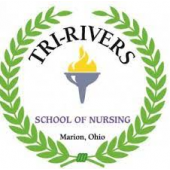
#51: Tri-Rivers School of Nursing
Tri-Rivers School of Nursing was the first career center in Ohio to offer an LPN-to-RN diploma program. The program has both 45-week and 90-week daytime options with a curricular focus on leadership, professionalism, and clinical skills. Graduates are well prepared for the NCLEX-RN licensure exam, scoring an impressive 92% first-time pass rate over the past decade. In addition to the LPN-to-RN diploma program, Tri-Rivers offers nurse aide and practical nursing pathways. The 84-hour CNA program reviews healthcare safety, patient assistance, and nutritional needs of the elderly in preparation for the nurse aide state test. The LPN program places a strong emphasis on clinical skills, with immersive rotations at major area hospitals. Two options are available: an accelerated 10-month daytime program and an evening 20-month program for working adults. Graduates have performed extremely well on the NCLEX-PN licensure exam, with a 93% first-time pass rate over the past decade.

#52: Ashtabula County Technical & Career Campus
Ashtabula County Technical & Career Campus provides extensive career training to both upper-level high school students and adult learners. The school’s programs are organized into academies, such as the Engineering Academy, the Health Care Academy, and the Public Safety Academy. The Health Care Academy offers several nursing options: a nurse aide course, a practical nursing diploma, and a registered nursing diploma. Nursing students engage in immersive coursework while gaining hands-on experience in day-to-day patient care, medical records management, and treatment plan development. A-Tech’s nursing programs are selective, with small class sizes and a strong track record of student performance on licensure examinations. The LPN program graduates 20-30 students annually, with an excellent 93% first-time NCLEX-PN pass rate over the past decade. The RN program graduates an additional 6-8 students each year, with an 83% first-time NCLEX-RN pass rate since the program’s recent launch.
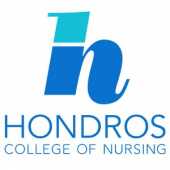
#53: Hondros College of Nursing
Hondros College of Nursing offers two prelicensure programs at its five convenient Ohio campus locations. The LPN diploma program features clinical experience in the second quarter of study, nursing simulation practice with interactive manikins, and IV therapy training. The college graduates 500-600 LPN students annually, with a solid 86% NCLEX-PN pass rate over the past decade. The 15-month ADN program grants admission to licensed practical nurses as well as direct-entry students with prior college credit or military medic training. Hondros graduates 300 ADN students annually, with an NCLEX-RN pass rate of approximately 72% over the past decade. The college recently opened a new location in Indianapolis, its first campus outside the state of Ohio, offering the practical nursing diploma on a 49-credit schedule.
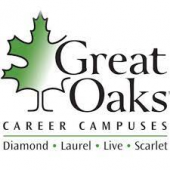
#54: Great Oaks Career Campuses
Since 1970, Great Oaks Career Campuses have provided education and training programs to high school students, adult learners, and businesses. One of the nation’s largest career and technical districts, Great Oaks has a practical nursing program for secondary school students. Coursework covers critical topics like patient-centered care, medical terminology, diagnostics, lifespan development, medical intervention, pathophysiology of diseases, and the Ohio Nurse Practice Act. Students can earn three credentials: state tested nurse aide (STNA), basic life support (BLS), and licensed practical nurse (LPN). The final credential is awarded upon passing the NCLEX-PN licensure examination. Great Oaks graduates a select cohort of 5-10 high school students annually from its practical nursing program. These students have achieved an exceptional 97% first-time NCLEX pass rate over the past decade. Graduates are prepared to pursue positions at hospitals, clinics, and nursing homes.

#55: Cuyahoga Valley Career Center
The School of Nursing at Cuyahoga Valley Career Center began in 1963 as the Parma School of Nursing. The school moved to its current Brecksville location in 2002. Cuyahoga Valley Career Center offers an LPN program with a fulltime ten-month option and a part-time 31-month option. Students begin the program with coursework on anatomy and physiology, life sciences, and nursing fundamentals. They then progress into nursing theory, laboratory exercises, supervised clinical experiences, and observational/enrichment opportunities at nine local sites. The school graduates 30-60 students annually across its fulltime and part-time LPN cohorts. Over the past decade, these graduates have averaged an 80% first-time pass rate on the NCLEX licensure exam.
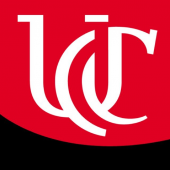
#56: University of Cincinnati Blue Ash College
UC Blue Ash is a regional college within the University of Cincinnati that offers local access to almost fifty degree and certificate programs. The college’s Department of Nursing has two associate degree pathways: a traditional ADN and an LPN-to-RN bridge. The two-year ADN program prepares students for entry-level nursing positions and for entry into the RN-to-BSN program at UC College of Nursing. Courses in the LPN-to-RN bridge are offered in a hybrid format which combines online learning with face-to-face classroom delivery. The LPN-to-RN pathway is a selective admissions program that is offered each summer, as long as minimum enrollment numbers are achieved.
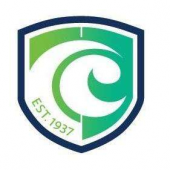
#57: Central School of Practical Nursing
Central School of Practical Nursing (CSPN) was Cleveland’s first LPN school. The school operated under the umbrella of the Family Health Association until it became a standalone nonprofit institution in 1962. Today, CSPN is the state’s only independent private non-profit LPN program. Students benefit from clinical partnerships with long-term care facilities, adult outpatient clinics, and childcare centers. This wide range of agency partners enables graduates to find gainful employment in a variety of healthcare settings. CSPN graduates 40-60 students annually. Over the past decade, these students have averaged an 81% first-time pass rate on the NCLEX-PN licensure examination.

#58: Scioto County Career Technical Center
Scioto Tech provides training in over fifty career qualifications to secondary and post-secondary students. The school’s most in-demand qualification is its practical nursing program designed for adult learners with a high school diploma or GED. The program includes 1,350 hours of classroom learning, laboratory exercises, and clinical experiences taken over 12 months. The curriculum explores basic nursing knowledge and skills, healthcare teamwork, clinical judgment, and the ethical foundations of nursing care delivery. Practical nursing students also receive CPR certification, and upon successful completion of the program, they are qualified to sit for the NCLEX-PN licensure examination. Over the past decade, Scioto Tech’s LPN graduates have averaged an 86% first-time NCLEX pass rate.

#59: Choffin Career & Technical Center
Choffin Career & Technical Center provides industry credential programs to adults seeking careers in dental assisting, practical nursing, and surgical technology. The LPN program consists of 1,400 total hours completed over forty weeks. Coursework covers critical topics like nursing practice, nursing skills, therapeutic management, anatomy, physiology, and intravenous therapy. Clinical experiences take place at local rehabilitation, acute care, long-term care, and community health sites. The Choffin CTC nursing program prepares approximately 30 graduates per year to sit for the NCLEX-PN licensure examination. Over the past decade, these students have averaged an 85% first-time NCLEX pass rate. After successfully completing the exam, graduates may seek immediate employment. They may also choose to transition into the RN program at Eastern Gateway Community College or Kent State University.
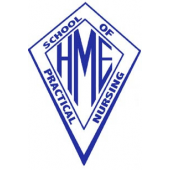
#60: Hannah E. Mullins School of Practical Nursing
Hannah E. Mullins School of Practical Nursing is approved by the Ohio Board of Nursing and accredited by the Accreditation Commission for Education in Nursing. The school’s practical nursing program may be completed on a fulltime or part-time schedule. The fulltime program requires 44 weeks of study, while the part-time program lasts for 88 weeks. Both options include immersive coursework on patient care, nutrition, pharmacology, and vital signs. Graduates are qualified to work in hospitals, clinics, nursing homes, residential care facilities, and home healthcare after successfully passing the NCLEX-PN licensure examination. Over the past decade, Hannah E. Mullins graduates have averaged an 85% first-time NCLEX pass rate.
